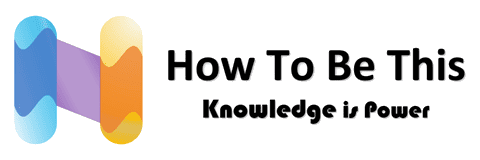Computer and Information Research Scientists are professionals who are responsible for advancing the field of computer science and technology. They work on developing new algorithms, software systems, and computing technologies to solve complex problems in various industries, including healthcare, finance, and transportation.
To excel in this field, computer and information research scientists require a set of key abilities that are crucial for their success. In this article, we will explore the top abilities for computer and information research scientists and why they are important. What are the top abilities required for Computer and Information Research Scientists?
These abilities range from cognitive abilities such as Deductive Reasoning and Inductive Reasoning, to communication abilities such as Oral Expression and Written Expression, to physical abilities such as Finger Dexterity and Manual Dexterity. It is important for Computer and Information Research Scientists to have a strong combination of these abilities in order to effectively conduct research and develop new technologies.
Additionally, some abilities such as Fluency of Ideas and Originality are especially important for developing creative and innovative solutions to complex problems, while others such as Visualization and Category Flexibility are important for thinking about problems from multiple perspectives and finding new connections between seemingly unrelated pieces of information.
Why Deductive and Inductive Reasoning are Critical for Computer and Information Research Scientists
Deductive and inductive reasoning are critical for computer and information research scientists because they enable them to develop theories and hypotheses, and to test them. Deductive reasoning is essential for designing algorithms and checking their correctness, while inductive reasoning is used to analyze large data sets, identify patterns and draw conclusions.
Both methods are fundamental for developing accurate predictions, models, and automated decision-making systems. By using deductive and inductive reasoning, computer and information research scientists can ensure the reliability and validity of their research and develop cutting-edge technologies that are essential for our modern digital world.
The Importance of Oral and Written Communication Skills for Computer and Information Research Scientists
As computer and information research scientists work with complex systems and technologies, they must have strong communication skills to effectively share their findings and ideas. Oral skills are essential for presenting research findings to colleagues and stakeholders, while written skills are necessary for documenting research processes and creating reports and publications. Clear communication helps to avoid misunderstandings and ensures that all parties involved have the same understanding of the research and its findings.
Additionally, effective communication can help to build strong working relationships with colleagues and collaborators, ultimately contributing to the success of the research project and the scientist’s career.
The Power of Idea Generation: How Fluency of Ideas and Originality Drive Innovation

Idea generation is crucial for innovation in computer and information research. The ability to generate a high quantity of ideas, or fluency, is important as it increases the likelihood of developing unique solutions to problems. However, originality is also a vital aspect of idea generation as it ensures that solutions are not just copies of previous ideas.
Computer and information research scientists constantly strive to come up with innovative ideas that can lead to breakthroughs in their fields. They may use various techniques such as brainstorming, mind mapping, and analogy to generate new ideas and build upon existing ones.
Additionally, cross-disciplinary collaborations can lead to new perspectives and a wider scope of ideas. Therefore, the power of idea generation lies in both fluency and originality, driving innovation and propelling the technological advancements in the computer and information research field.
How Problem Sensitivity and Information Ordering Enhance the Work of Computer and Information Research Scientists
Computer and information research scientists are constantly dealing with complex problems and vast amounts of information. In order to effectively solve these problems and make sense of the data, they must possess strong problem sensitivity and information ordering skills. Problem sensitivity helps them to recognize when there is an issue that needs to be addressed and to anticipate potential roadblocks. This allows them to be proactive in finding solutions and preventing problems before they occur.
Information ordering, on the other hand, allows scientists to categorize and prioritize information based on its importance and relevance. This skill is critical in managing large amounts of data and helps ensure that the information is being used effectively and efficiently. Ultimately, problem sensitivity and information ordering enhance the work of computer and information research scientists by improving their ability to identify and solve problems, manage complex data, and produce accurate and meaningful results.
The Role of Originality and Mathematical Reasoning in the Field of Computer and Information Research
Originality and mathematical reasoning are integral components in the field of computer and information research. In order to create innovative solutions, originality is required to generate new ideas and approaches that have not been previously considered. This is necessary for advancement and improvement in the field.
Additionally, mathematical reasoning is important for computer research as it provides a logical framework for problem-solving and data analysis. Precise and accurate mathematical calculations are essential in programming and data processing. Furthermore, mathematical models can be used to develop algorithms that aid in the decision-making process. Without originality and mathematical reasoning, advancements in computer and information research would be limited.
As technology continues to advance rapidly, the demand for originality and mathematical reasoning in this field will only increase in importance. Therefore, individuals who possess these skills will have the ability to contribute to the growth and development of this field.
Seeing Beyond Reality: How Visualization and Category Flexibility Shape Computer Research
Computer research scientists are skilled in seeing beyond reality through visualization and category flexibility. The ability to visualize complex concepts allows them to better understand and manipulate abstract ideas. Category flexibility, or the ability to shift between different ways of categorizing information, enables them to view problems from multiple perspectives and find innovative solutions.
These skills are essential for computer scientists to stay ahead of the constantly evolving technology landscape. Through visualization and category flexibility, computer research scientists are able to push the boundaries of what is possible and create groundbreaking advancements in their field.
Overcoming Hurdles: Common Challenges Faced by Computer and Information Research Scientists
Computer and information research scientists face a multitude of common challenges in their profession. One of the biggest hurdles they face is staying up to date with the ever-evolving technology and software. They need to constantly learn new programming languages and tools to keep their skills sharp and relevant. Another challenge is maintaining a work-life balance, as research scientists often work long hours on complex projects.
Additionally, securing funding for their research projects can be a difficult task. Despite these challenges, computer and information research scientists work tirelessly to overcome them in order to advance technological innovation and make impactful contributions to society.
Unlocking Success: Key Takeaways for Building a Career in Computer and Information Research
Unlocking success as a computer and information research scientist requires a combination of technical expertise, business acumen, and communication skills. Building a career in this field entails a commitment to lifelong learning, constantly adapting to new technologies and methodologies, and embracing creativity to yield innovative solutions.
Aspiring professionals can benefit from a solid educational foundation, supplemented with advanced courses in areas such as artificial intelligence, machine learning, and big data analysis. It is also important to seek out mentorship opportunities and gain practical experience through internships or research projects.
Lastly, developing strong communication skills and cultivating a professional network can unlock numerous doors for aspiring computer and information research scientists. With dedication and perseverance, individuals can leverage these key takeaways to unlock success in a rapidly evolving field.
Watch YouTube Video: “The Role of Computer and Information Research Scientists“
Amazon Book Links:
- “Algorithms to Live By: The Computer Science of Human Decisions” by Brian Christian and Tom Griffiths
This book is a fascinating read that explores how computer algorithms can be applied to everyday decision-making processes. The authors discuss how ideas from computer science, such as caching, scheduling, and game theory, can help people make better decisions in a variety of contexts. This book is particularly helpful for individuals who want to optimize their decision-making abilities, as it provides a unique perspective on the topic.
- The Art of Computer Programming, Volumes 1-4A Boxed Set by Donald E. Knuth
Donald E. Knuth is one of the most respected computer scientists in the world, and this book set is his magnum opus. The Art of Computer Programming provides an in-depth look at the principles and techniques that underlie computer programming. It covers a wide range of topics, from fundamental algorithms and data structures to advanced concepts like compiler design and parallel processing. This book is essential reading for anyone who wants to gain a deep understanding of computer programming and its underlying principles.
- Computer Science Distilled: Learn the Art of Solving Computational Problems by Wladston Ferreira Filho and Raimondo Pictet
Computer Science Distilled is a great introductory book for individuals who are new to computer science. It covers the fundamental concepts of computer science in a clear and concise manner, making it accessible to beginners. The book covers a wide range of topics, including algorithms, data structures, programming languages, and computer architecture. The authors use real-world examples and practical exercises to help readers understand the material.
Conclusion
In conclusion, the abilities required for computer and information research scientists are essential for success in this field. Deductive reasoning, inductive reasoning, oral and written comprehension and expression, problem sensitivity, and fluency of ideas are just a few of the abilities required for this profession. Individuals who want to succeed in this field should focus on developing these abilities, as they will be essential for success.
FAQs
Q: Do computer and information research scientists need to have a degree in computer science?
A: Yes, most computer and information research scientists hold a degree in computer science or a related field. Some entry-level positions may only require a bachelor’s degree, but many positions require a master’s degree or higher.
Q: What is the job outlook for computer and information research scientists?
A: The job outlook for computer and information research scientists is projected to grow by 15% from 2019 to 2029, much faster than the average for all occupations. The demand for computer and information research scientists is expected to continue to grow as technology advances and new applications for technology are developed.
Q: What kind of tasks do computer and information research scientists typically perform?
A: Computer and information research scientists typically perform tasks such as designing new computer software and hardware, developing algorithms and computer systems, analyzing data, and conducting research to solve complex problems in computing.









Leave a comment